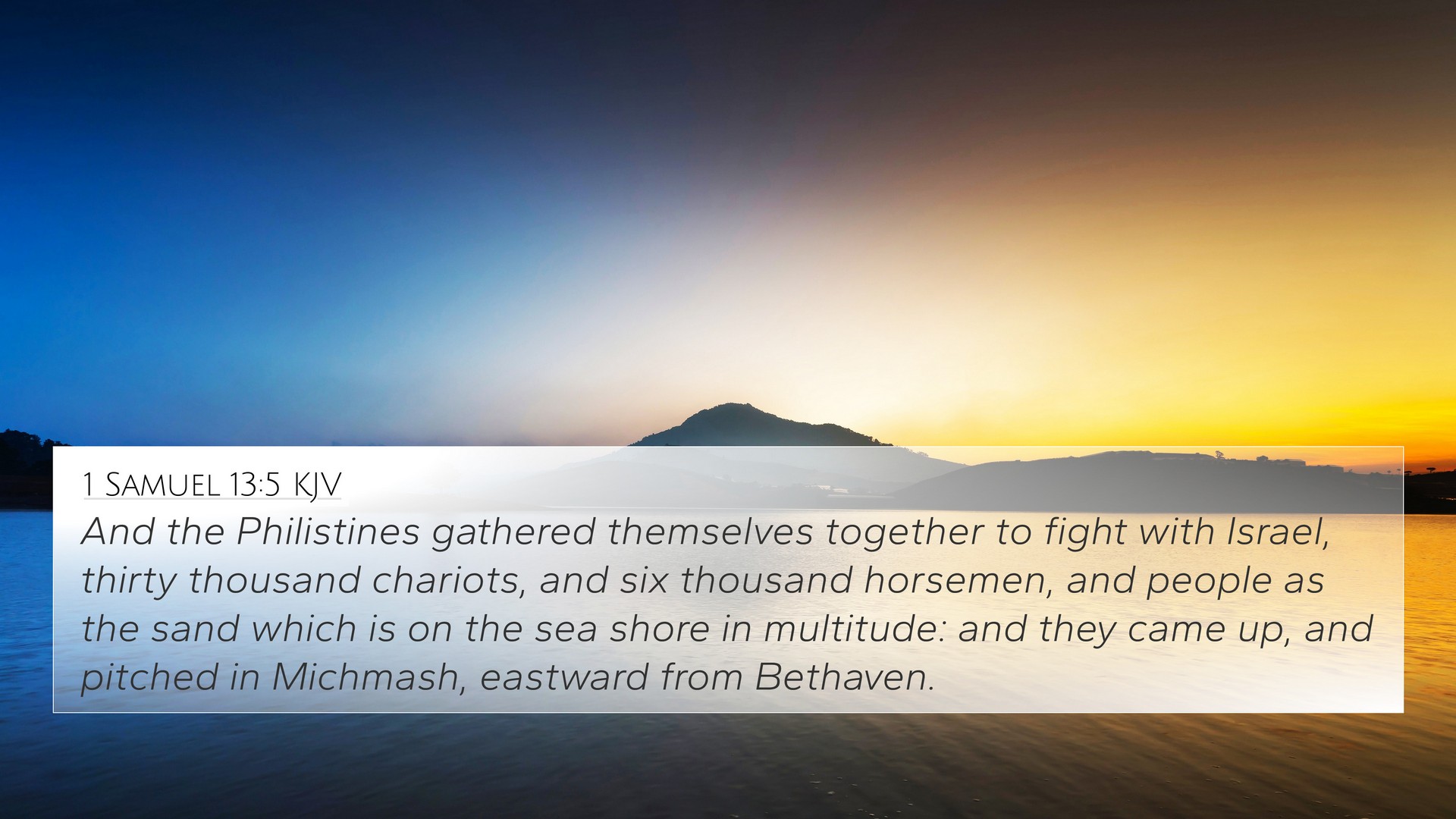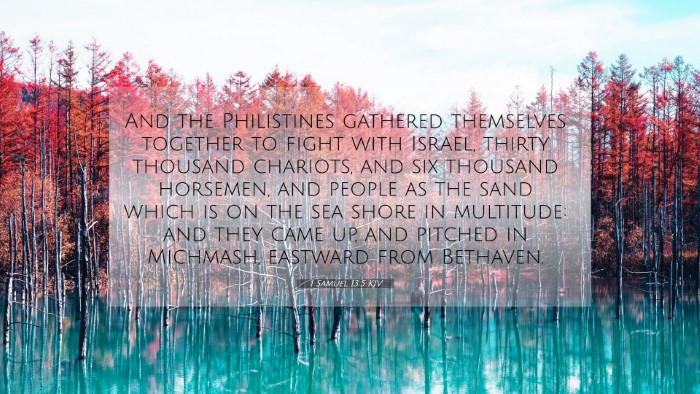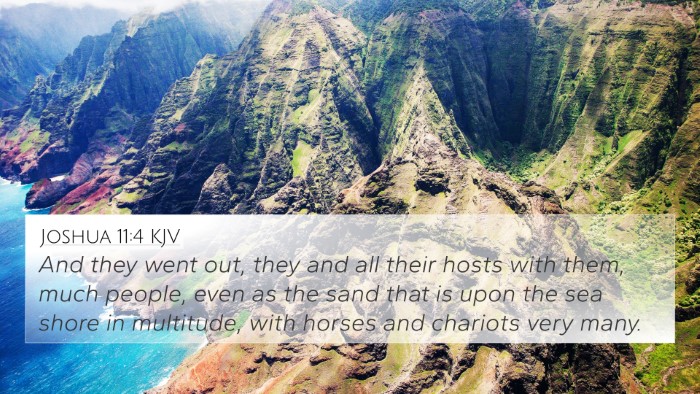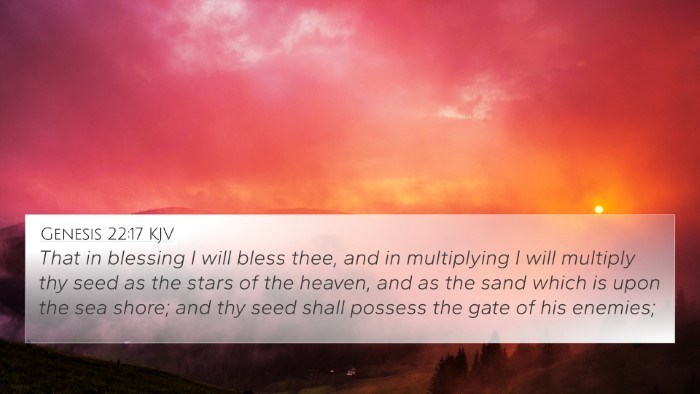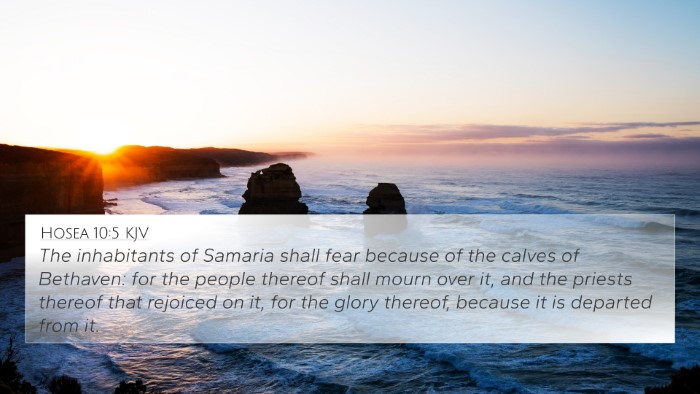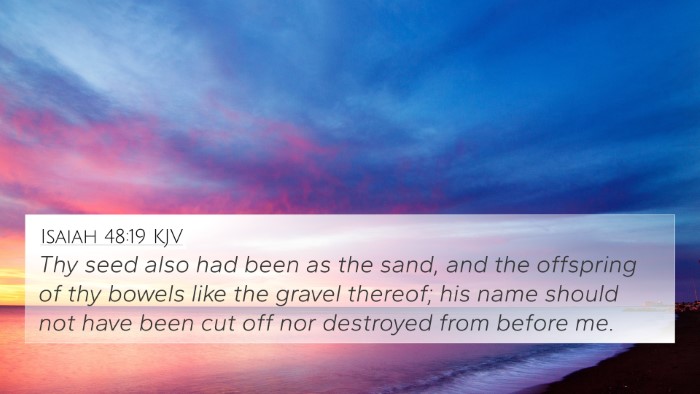Understanding 1 Samuel 13:5
Verse Text: “And the Philistines gathered themselves together to fight with Israel, thirty thousand chariots, and six thousand horsemen, and people as the sand which is on the sea shore in multitude: and they came up, and pitched in Michmash, eastward from Bethaven.” (1 Samuel 13:5 KJV)
Contextual Overview
This verse occurs in a pivotal moment in the narrative of Saul's reign. The Philistines assembled a vast army against Israel, showcasing their military might and posing a significant threat to the Israelite people. The mention of "thirty thousand chariots" emphasizes the overwhelming force faced by Israel.
Insights from Public Domain Commentaries
- Matthew Henry: Henry emphasizes the scale of the Philistine army as a representation of their confidence and the impending test of Israel's faith. He notes that this massive gathering of enemies signals a critical moment where Saul's leadership and reliance on God will be tested.
- Albert Barnes: Barnes points out the geographical significance of Michmash and how the Philistines utilized the terrain to their advantage. He reflects on the despair that overtakes the Israelites in the face of such a formidable enemy and urges readers to understand the importance of divine assistance in battles against overwhelming odds.
- Adam Clarke: Clarke provides insights into the emotional response of the Israelites during this crisis. He describes the fear and anxiety that would naturally arise in the people with the portrayal of an enemy force described as "the sand which is on the sea shore"—a metaphor for numbers beyond counting. Clarke also connection to previous instances of God delivering His people, reminding that divine intervention often comes in dire situations.
Thematic Connections and Cross References
This verse sets the stage for understanding themes of faith, leadership, and reliance on God in the face of adversity. Below are cross-references that enhance the interpretation of this passage:
- Exodus 14:13-14: A reminder of God's deliverance during the Exodus, encouraging faith in dire conditions.
- Psalm 20:7: This verse speaks to trusting in the name of the Lord over earthly might—connecting directly to the theme of reliance versus despair.
- Isaiah 41:10: God's reassurance of support and strength to His people mirrors Saul's need for divine assistance.
- 1 Samuel 17:47: The account of David and Goliath is a significant parallel, demonstrating how God fights battles through His chosen leaders.
- 2 Corinthians 10:3-4: Paul contrasts spiritual warfare with physical fighting, connecting to the metaphor of battle in 1 Samuel.
- Hebrews 11:32-34: This passage reflects on the faith victories of the biblical heroes, encouraging readers that faith leads to triumph over threats.
- Philippians 4:13: "I can do all things through Christ which strengtheneth me," a vital teaching that complements reliance on God in times of crisis.
- Romans 8:31: This emphasizes that if God is for us, who can be against us? A powerful reminder in the face of the Philistines’ might.
- 2 Chronicles 20:15: Jehoshaphat's battle strategy (relying on God) is a further illustration of faith that echoes the situation faced by Saul.
- Matthew 19:26: Reminds readers that with God, even what appears impossible can be made possible, relevant to dealing with overwhelming threats.
Conclusion
The events surrounding 1 Samuel 13:5 demonstrate the critical importance of faith in God for deliverance in times of great peril. The overarching theme of reliance on God's strength resonates throughout Scripture and provides insight into both historical and spiritual battles faced by believers. By exploring the corresponding verses and themes, individuals can better grasp the rich teachings of this passage and find relevance for their own lives.
Keywords: Bible verse cross-references, connections between Bible verses, cross-referencing Biblical texts, thematic Bible verse connections.
